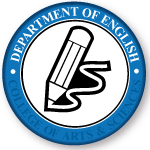Document Type
Speech
Publication Date
2-14-2024
Abstract
This podcast series reflects how war impacts all of us by listening to the different perspectives of those that have lived it, understanding how the media shapes our views of war, understanding our own feelings, and learning life skills for managing stress, fear, and anxiety. Our goal is to educate, remind you that you aren’t alone, and give you tools to navigate living and watching war.
Sam shares a few of his experiences of survival during WWII and what it means to be an artist representing displacement, survival, and hope. Following a 2019 exhibition at UNO, the artist donated more than 500 works for a museum and learning center on UNO’s campus.
Participants in this episode:
Barbara K Robins, Assistant Professor of English, UNO
Samuel Bak, Holocaust Survivor and Artist
For more information, visit the website for the Samuel Bak Museum: The Learning Center. https://www.unomaha.edu/samuel-bak-museum-the-learning-center/
Link to Spotify episode: https://open.spotify.com/episode/1mfK2K7btye2drHeHqYntK
Recommended Citation
Robins, Barbara K. and Stewart, Jessie, "Face of War: A Collective Narrative Podcast -Season 2 Episode 4: Samuel Bak, Holocaust Survivor and Artist, Part 2" (2024). English Faculty Proceedings & Presentations. 10.
https://digitalcommons.unomaha.edu/englishfacproc/10
Face of War Poster
Episode 4 - Samuel Bak, Holocaust Survivor and Artist, Part 2.mp3 (48458 kB)
MP3 of Face of War Season 2 Episode 4


Comments
We'd like to thank the following for making this possible. Thanks to the Department of English, Criss Library and the Creative Production Lab, Military-Connected Resource Center, Center for Afghanistan Studies, School of Communication, Department of Political Science, Counseling and Psychological Services, MK Projects LLC and all our students who volunteered their time to participate in this podcast series.
Non-Discrimination Statement
The University of Nebraska does not discriminate based on race, color, ethnicity, national origin, sex, pregnancy, sexual orientation, gender identity, religion, disability, age, genetic information, veteran status, marital status, and/or political affiliation in its programs, activities, or employment.